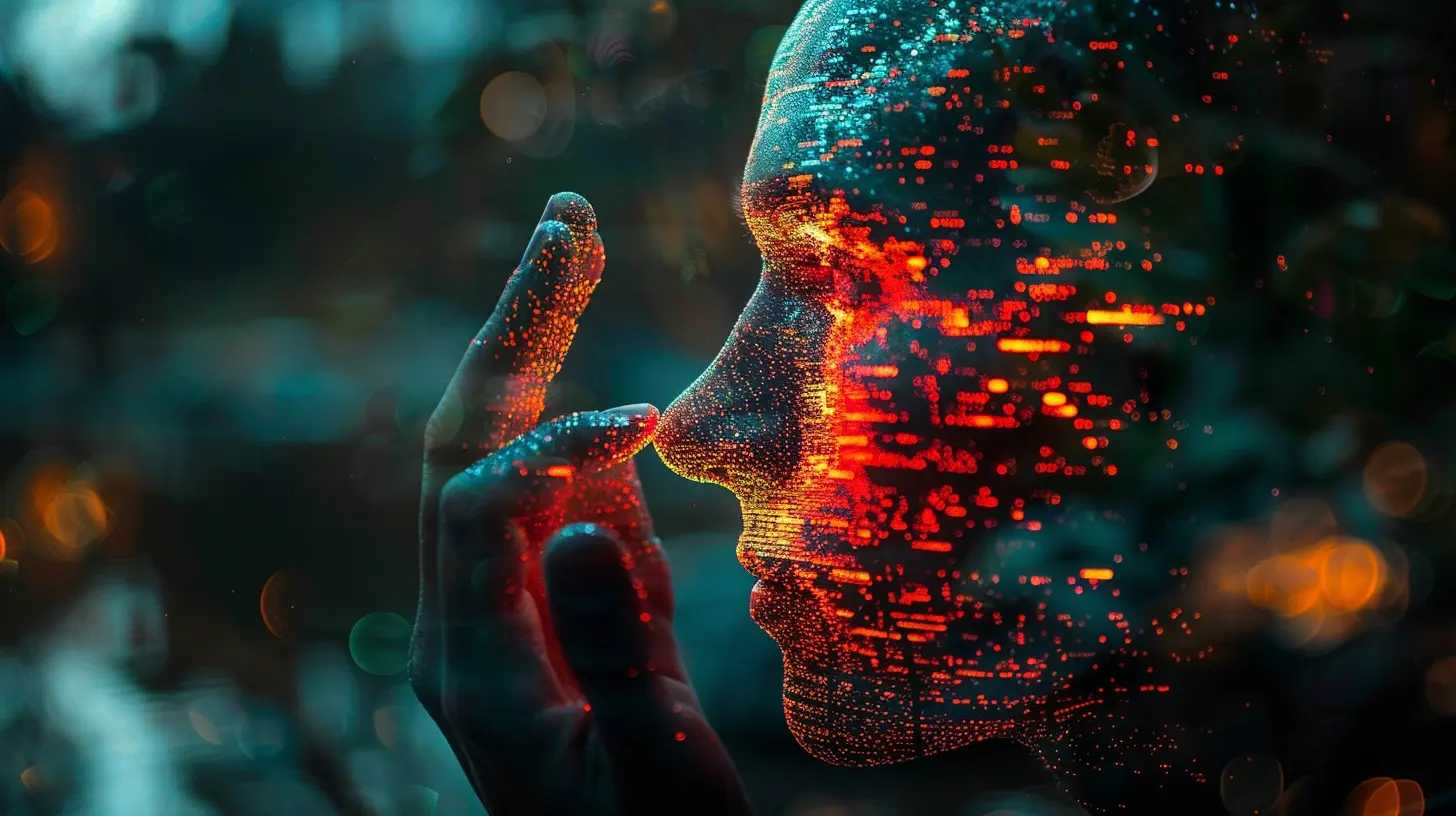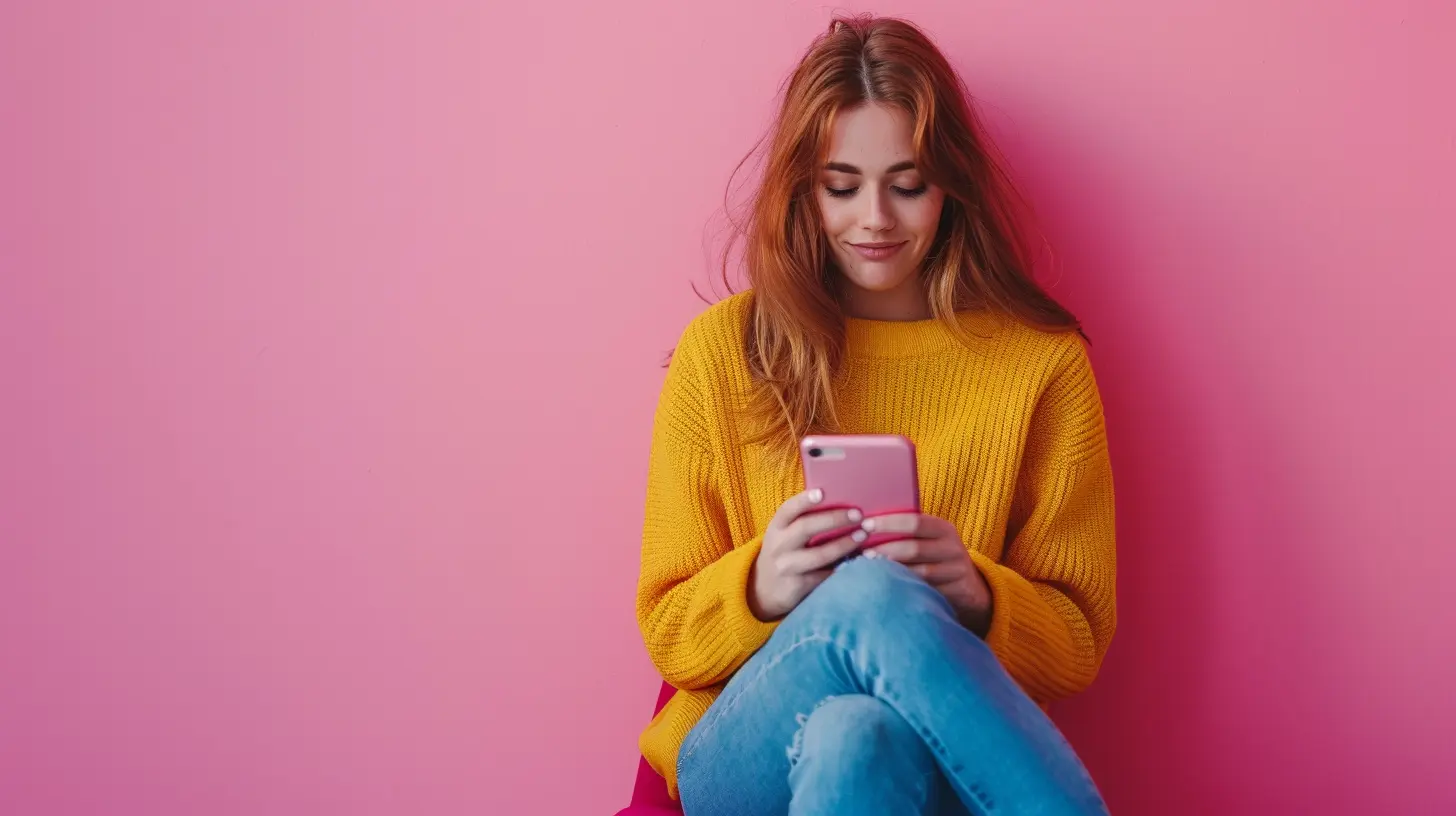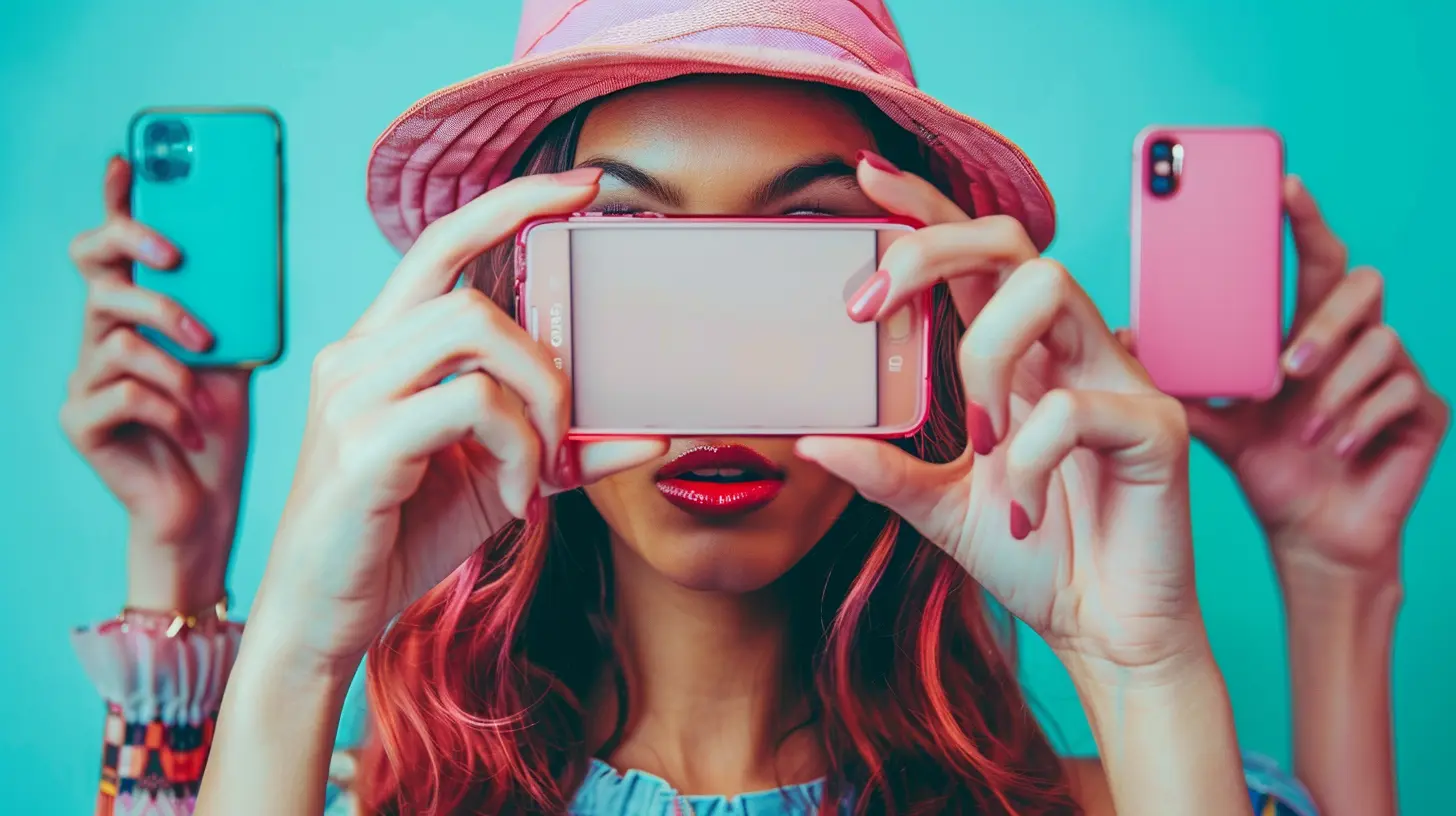How Social Media Shapes Our Perception of Body Image
5 August 2025
Let’s be honest—most of us scroll through Instagram or TikTok and, at some point, pause at a photo and think, “Wow, I wish I looked like that.” Whether it’s a chiseled jawline, a tiny waist, or that perfect skin without a single pore in sight, social media is filled with highly curated images. But here’s the thing—those images? They’re not always real. And even if they are, they capture just a tiny (and often edited) moment in time.
In this post, we’re diving deep into how social media influences the way we see ourselves—and others. Body image is more than just how we look; it's how we feel about how we look. And social media has a massive hand in shaping that perception.

What Is Body Image, Anyway?
Before we go unpacking social media’s suitcase of issues, let’s get clear on what body image actually means.Body image is the mental picture you have of your own body—plus the thoughts and feelings that picture brings up. It can be positive, negative, or somewhere in between. Importantly, it may or may not align with what you really look like.
Think of it like this: imagine looking at your reflection in a funhouse mirror. Even though what you see is twisted or exaggerated, if you believe that’s what you really look like, it feels real. Social media acts like a digital funhouse mirror, distorting our views of what's “normal,” “attractive,” or “ideal.”

The Rise of Filter Culture
Remember the early days of Instagram? Some Valencia filter, maybe a blurry coffee cup photo? Fast forward to today, and it’s all about face-tuning apps, airbrushing, and AI-generated enhancements. Filters used to be fun; now they’re often used to fit a beauty standard that feels more robotic than human.Why is that a problem? Because when you’re constantly bombarded with “perfect” images—people with flawless skin, no cellulite, and the “right” curves in the “right” places—it messes with your brain. You start comparing your real self (complete with flaws) to someone’s edited self (complete with digital magic). Spoiler alert: that comparison is never fair.

Social Comparison is Built Into the Platform
Let’s talk psychology for a second. A concept called “social comparison theory” explains how we determine our own worth based on how we think we stack up against others. And guess what? Social media is the ultimate playing field for comparison.You’re not just comparing yourself to your friends; you’re comparing yourself to influencers, celebrities, and even strangers you’ve never met. And you're doing it several times a day, every single day.
What’s worse? Those comparisons don’t usually lean positive. People tend to feel worse about themselves after scrolling through idealized images. It’s like running a race you didn’t sign up for—and one you feel like you can’t win.

The Algorithm Is Not Your Friend
Ever notice how once you like a couple of fitness posts or follow a few beauty influencers, your feed gets flooded with more of the same? That’s the algorithm doing its thing.It wants to keep you on the platform, so it shows you more content you’re likely to engage with—even if that content is making you feel worse about yourself. You might start out looking for workout tips and end up drowning in “what I eat in a day” videos that push unrealistic calorie goals and body standards.
The algorithm doesn't care about your mental health—it cares about engagement. And if negative comparison keeps you scrolling, so be it.
Influencers, Sponsorships, and The Body Image Game
Let’s not sugarcoat it—many influencers make a living based on the way they look. Their bodies aren’t just bodies; they’re part of a brand. A perfectly sculpted figure or glowing skin grabs attention, which can mean more followers, more likes, and more money through sponsorships.But here’s the kicker: a lot of those posts showing dramatic “glow-ups” or miracle products are carefully planned. Great lighting, professional photos, and sometimes even a personal trainer or plastic surgery are behind the scenes. You’re not just seeing someone’s life—you’re seeing a commercial.
So, every time you feel inadequate based on what you see online, remind yourself: it’s marketing, not real life.
The Pressure to Post Perfectly
It’s not just celebrities and influencers under pressure—social media users in general feel the need to post their best selves. That means most people are curating their lives for the ‘gram. You know the drill: 72 selfies to get the right one, a filter for the skin, maybe a little nip-tuck with an app, then a caption pretending it’s all effortless.This performance culture can make it feel like everyone else has their life (and body) together, while you’re just struggling to get out of bed. But the truth is, everyone’s doing the same dance—you’re just seeing their highlight reel, not the bloopers.
Gender and Body Image: It’s Not Just a “Girl Thing”
Although body image struggles are often associated with women, guys aren’t immune. In fact, the pressure on men to be muscular, lean, and effortlessly cool is very real.Social media platforms are full of “fitspo” accounts showing ripped dudes with six-packs and unreal gym routines. And just like with women, filters and angles play a big role. Unfortunately, because male body image issues are less talked about, a lot of guys suffer in silence.
The bottom line? Body image concerns affect everyone, regardless of gender.
Eating Disorders and Mental Health
This part gets serious—because the impact of social media on body image isn’t just about insecurity or low self-esteem. It can go deeper.Numerous studies have linked excessive social media use with higher risks of eating disorders like anorexia, bulimia, and binge eating. Constant exposure to “thinspiration” or “fitspiration” posts can lead people down a dangerous path of restriction, over-exercising, or obsessing about their appearance.
Not to mention, feeling like you’ll never measure up can trigger anxiety, depression, and self-harming behaviors. Social media isn’t just an app; for some people, it becomes a mental health minefield.
The Rise of #BodyPositivity and #BodyNeutrality
Here’s the good news: Not all of social media is toxic. There’s been a powerful pushback in recent years, with movements like #BodyPositivity and #BodyNeutrality gaining serious traction.Nowadays, more creators are celebrating all kinds of bodies—curvy, disabled, scars, stretch marks, and everything in between. These accounts aim to normalize what real bodies look like and encourage followers to ditch comparison in favor of self-love or, at the very least, body tolerance.
Body neutrality, in particular, has gained steam. Instead of focusing on loving your body all the time (which can feel unrealistic), it encourages people to simply accept their bodies and appreciate what they can do, not just how they look.
How to Protect Your Mental Health on Social Media
Alright, now that we know how social media can affect our body image, what can we actually do about it? You don’t have to delete all your apps and live in a cave (unless that’s your thing). Here are some healthier ways to navigate the digital world:1. Curate Your Feed
Start by unfollowing accounts that make you feel bad about yourself. It’s not rude—it’s self-care. Follow body-positive creators, mental health advocates, and people who show real life, not just highlight reels.2. Limit Screen Time
Set time limits on your apps or take regular digital detoxes. Even just cutting back can give your brain some breathing room.3. Reality Check What You See
Remind yourself that most posts are filtered, edited, and planned. You’re not seeing reality; you’re seeing a performance.4. Talk About It
Feeling insecure? Don’t bottle it up. Talking to a friend or therapist can help you unpack those feelings and get some perspective.5. Focus on What Your Body Can DO
Shift your mindset from “How do I look?” to “What can my body do for me today?” Gratitude for your body’s function can be more empowering than focusing on appearance.6. Practice Self-Compassion
You won’t always feel confident—and that’s okay. Speak to yourself like you’d talk to a friend. Would you call your bestie ugly after one bad hair day? Didn’t think so.Let’s Wrap It Up
Social media isn’t going anywhere, and honestly, it’s not all bad. It connects us, entertains us, and sometimes even inspires us. But it also has a dark side—one that can twist our self-image and make us feel like we’re not enough.By becoming more aware of how social media shapes our perception of body image, we can start to take control. We can set boundaries, follow uplifting content, and remind ourselves that our worth has absolutely nothing to do with how we look in a selfie.
Your reflection isn’t broken. Maybe the mirror is just on Instagram.
all images in this post were generated using AI tools
Category:
Body ImageAuthor:

Eliana Burton
Discussion
rate this article
1 comments
Miranda McFarland
Great article! It’s fascinating how social media influences our body image perceptions. I appreciate the insights on the impact of curated content. Let’s continue promoting body positivity and awareness to create a healthier online environment for everyone! Keep up the great work!
August 29, 2025 at 3:00 AM

Eliana Burton
Thank you for your thoughtful comment! I completely agree—promoting body positivity is essential for fostering a healthier online space.


